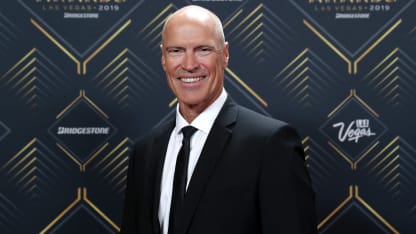Five Questions with Mark Messier
Hall of Famer on Rangers rebuild, Oilers, Draisaitl, why he wore No. 11

© Bruce Bennett/Getty Images
Panarin lighting it up for Rangers so far
WPG@EDM: McDavid beats a sprawling Hellebuyck
Hall of Famer on Rangers rebuild, Oilers, Draisaitl, why he wore No. 11

© Bruce Bennett/Getty Images
Panarin lighting it up for Rangers so far
WPG@EDM: McDavid beats a sprawling Hellebuyck